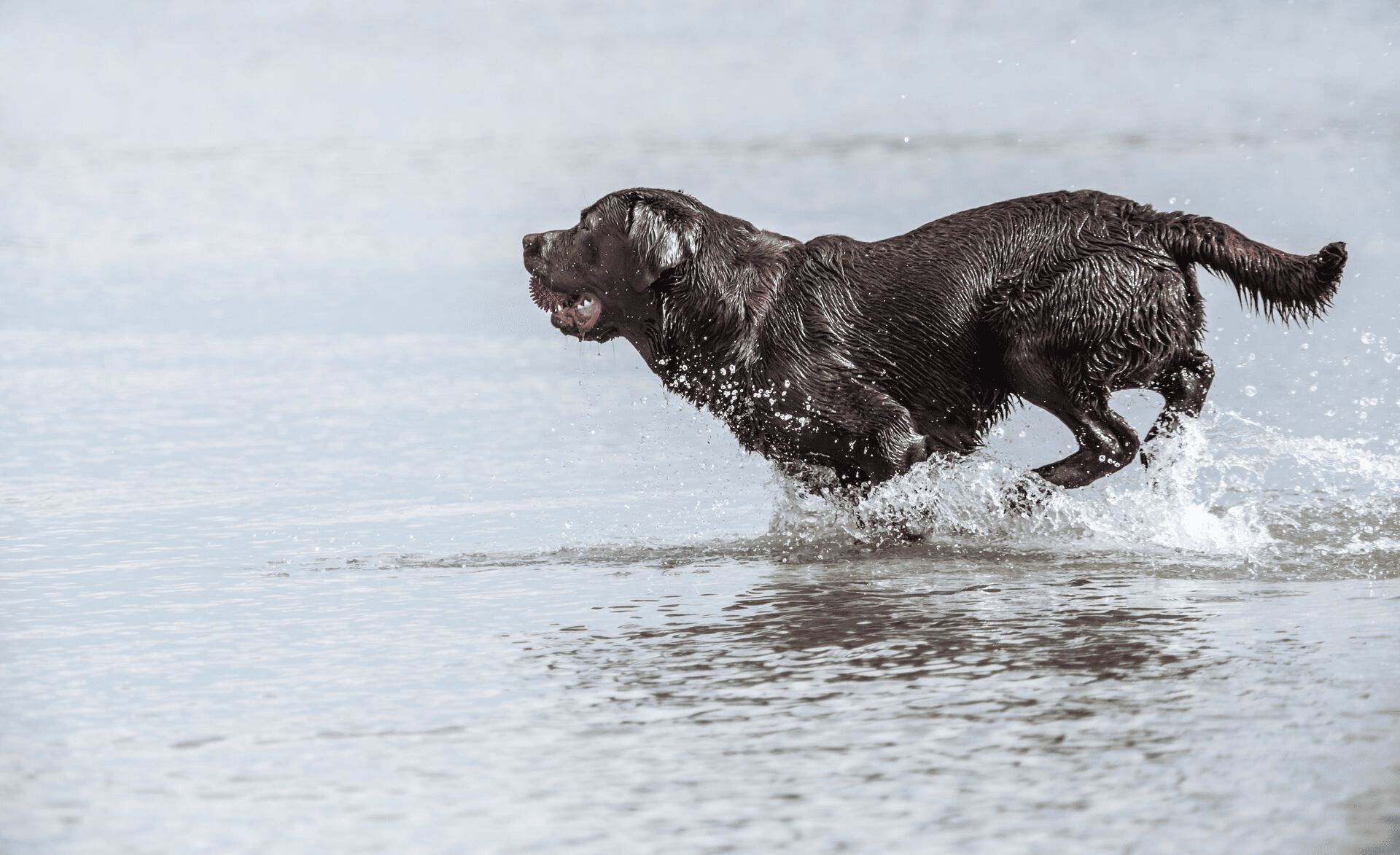Signs, Symptoms, & How to Treat Saltwater Poisoning in Dogs
Find out more about the symptoms and how to prevent Saltwater Poisoning in Dogs from our veterinary experts. Here at Gower Vets Swansea, our team has years of experience thanks to our seaside location. Contact us today to find out more or to speak to our team to book a consultation for your dog.
What is Saltwater Poisoning in Dogs?
Swansea, and South Wales in general, is full of amazing beaches that are ideal for a long walk, or even a swim when the weather permits. Our dogs know this just as much as we do. Seaside visits are a fantastic place for fun and enrichment. The coast is full of rock pools with unusual smells, long beaches to stretch their legs on, other dogs to socialise with, and not to mention ocean swimming opportunities.
Beaches do, however, present a few unique dangers to our furry friends. Saltwater poisoning can be a common issue for dog owners who frequently take their pooch to the beach. The major issue for dogs who drink seawater is the high levels of sodium in the water. As your dog gets hot and dehydrated from all their rigorous exercise at the beach, they become more likely to drink from the main water source available to them. Unfortunately, the salt in seawater will dehydrate your dog further, causing them to drink more and inevitably raising the sodium levels in its body.
Why are High Sodium Levels an Issue?
In general, a few sips can be fine and often will not cause any issues for your dog. It is when they drink significant amounts of seawater that it becomes an issue, and you may need to act quickly to prevent any serious harm.
Salt is a natural and healthy part of a dog’s diet. Too much salt, however, will cause your dog’s body to try and correct the imbalance in their blood. The blood cells in their body release the water stored to even out the high salt levels in the blood. When left untreated, your dog will become dizzy, confused, and more lethargic than normal. Saltwater poisoning can also cause their muscles to stiffen as they lose moisture, causing the dog to walk strangely or begin shaking.

Saltwater Poisoning Symptoms in Dogs
Dogs are very boisterous and active when they play at the beach. It can, therefore, be difficult to constantly supervise your dog when they are in and out of the sea. Even the most vigilant dog owner can miss their dog taking a quick drink break.
One of your best chances of preventing serious harm to your dog is to arm yourself with the signs and symptoms of seawater poisoning.
The most common signs and symptoms of saltwater poisoning in dogs present relatively fast. These include:
- Extreme Thirst/ Dehydration
- Excessive Urination
- Lethargy and Confusion
- Nausea/Vomiting
- Diarrhoea
- Muscle Spasms/Tremors
- Seizures
Extreme cases of saltwater poisoning can be potentially fatal for dogs. If left untreated, these symptoms can develop into kidney and brain damage, which can be serious, not to mention costly, problems.
Don’t allow yourself to get caught out with an easily preventable and treatable issue. Swansea is a coastal city, and knowledge of seawater poisoning can be key to keeping your dog safe and healthy.
Book a Consultation With Our Team
What Can I do if I Think My Dog Has Salt Poisoning?
If you suspect your dog has drunk a lot of seawater, do not hesitate to contact your vet’s practice immediately. They will be able to support you over the phone even if you do not need to go into the practice.
There are a few things you can do if your dog starts to present with vomiting or diarrhoea:
- Firstly, give them a break from the water and/or the beach.
- Finding a calm, relaxed, and sheltered space for them to rest can give them a chance to recover while being monitored.
- Offer them sips of clean, fresh water approximately every 30 minutes. This will allow them to replenish their fluids without upsetting their stomach further.
- Monitor them for the next 24-48 hours. Most dogs will recover after drinking seawater. When they have persistent vomiting and diarrhoea, or their condition seems to get worse, we recommend getting in touch with your vet as soon as possible.

How do I Prevent Sea Water Poisoning Next Time?
Preparation is the best way to minimise the risks of seawater poisoning for your dog.
- Plan your trip early. Bring along the canine essentials to every beach trip, such as poo bags, treats, fresh drinking water, and even an umbrella to ensure they have shade from the hot sun.
- Ensure your dog has regular breaks to drink fresh, clean water. They will be less inclined to drink seawater if they are already hydrated.
- Keep your vet’s emergency contact number to hand. Time is not your friend in poisoning cases. Reduce the amount of time wasted before your dog gets help by keeping their number saved and ready on your phone.
- Reduce their ocean time if they cannot stop themselves from drinking seawater.
- Similarly, if they are known to drink saltwater whilst in the sea, you could keep them on a leash. Rather than allowing your dog free rein of the beach, you can buy extendable leashes. Extendable leads give your dog some freedom, whilst allowing you to remain in control of them.
At Gower Vets, our emergency services are well-equipped to handle a wide range of emergencies. Our main practice is only a 10-minute drive from Swansea Beach. Whilst our out-of-hours surgery is only a 20-minute drive from both Swansea Beach and Aberavon Beach. Join us today to discover the wide variety of services that our practice can offer you!
Need More Support?
For more information about saltwater poisoning or your pet’s health, contact us here to speak to our team of experts.
Book a Consultation With Our Team






